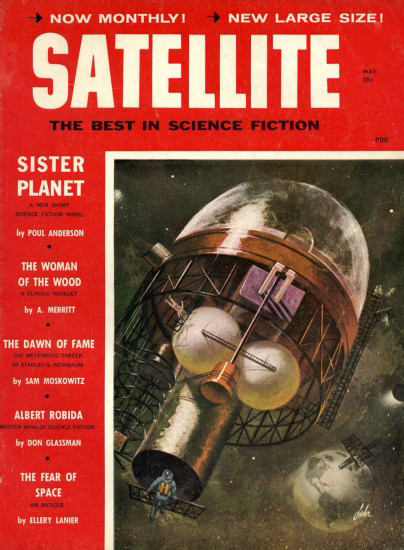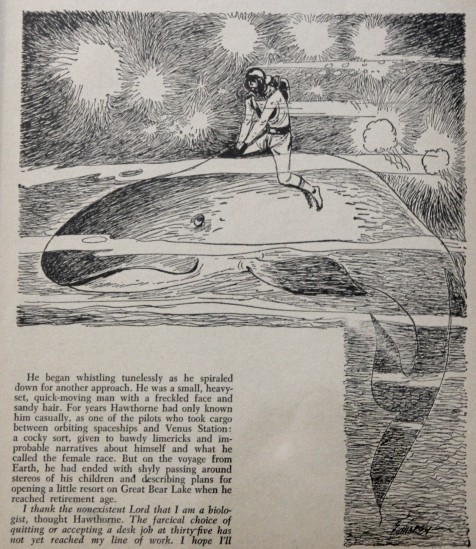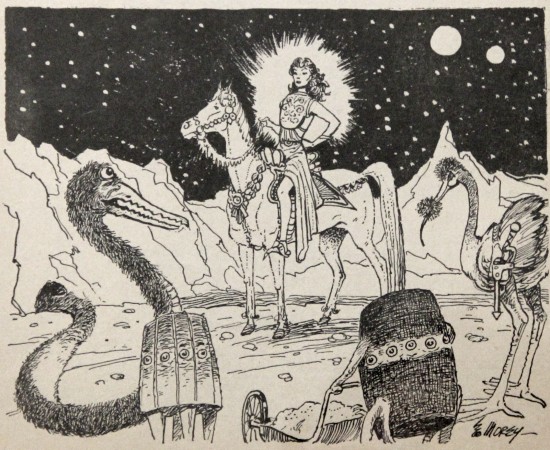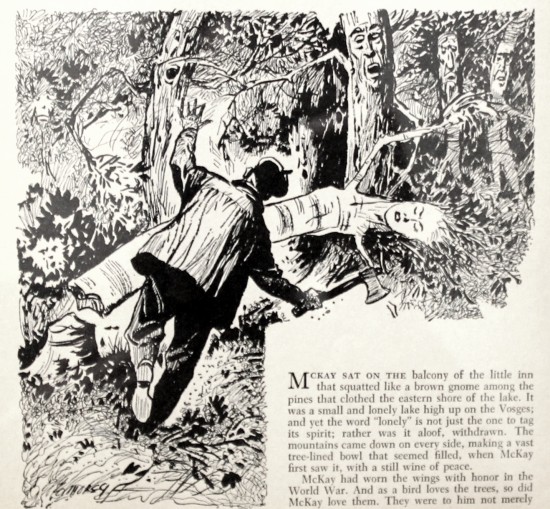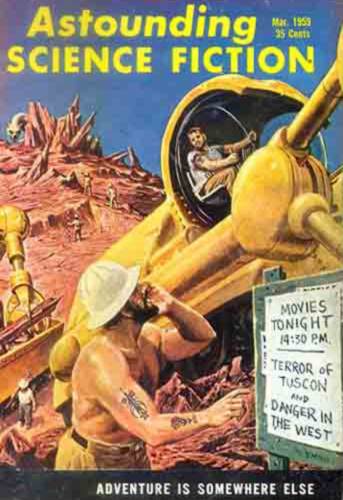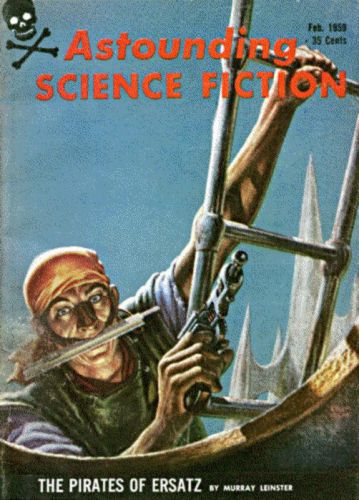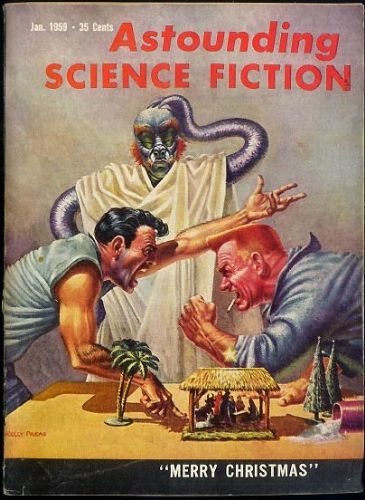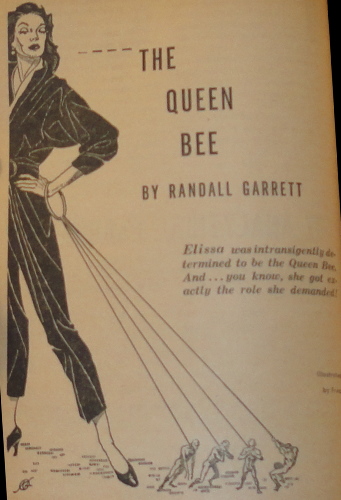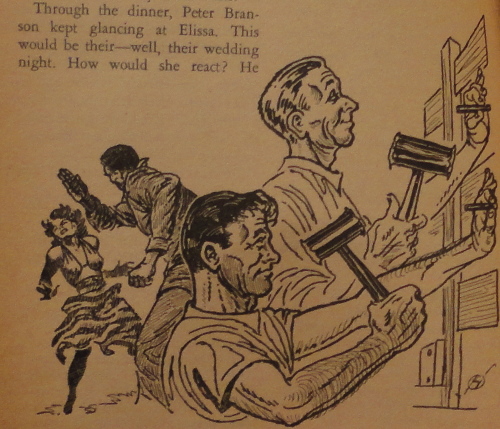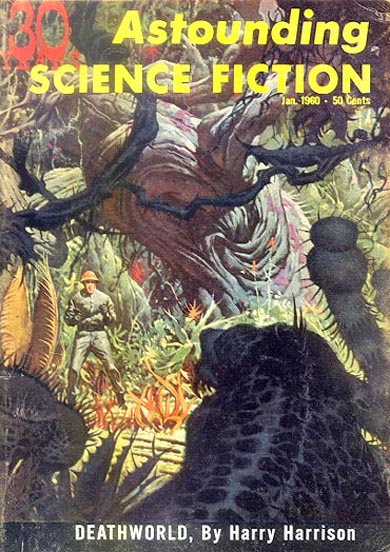
There are times that I feel I could trot out the same Astounding review every month. It would go something like this:
"Editor John Campbell continues to showcase Human-First, psionic stories with young male protagonists and virtually no female characters. The table of contents features Randall Garrett, Robert Silverberg, Poul Anderson, and Murray Leinster. Yet again, the magazine is a disappointment."
For the most part, the above summary would serve this month, but there is a kicker at the end of this review.
Skipping the first part of a serial by a fellow of whom I've never heard (a Harry Harrison), the issue opens up with one of Murray Leinster's weaker outings, Attention Saint Patrick. Leinster is often excellent, but in this one, he's just boringly droll, telling the story of an Irish space colony that relies on giant serpents to control its vermin problem—in this case, little dinosaurs with diamond teeth.
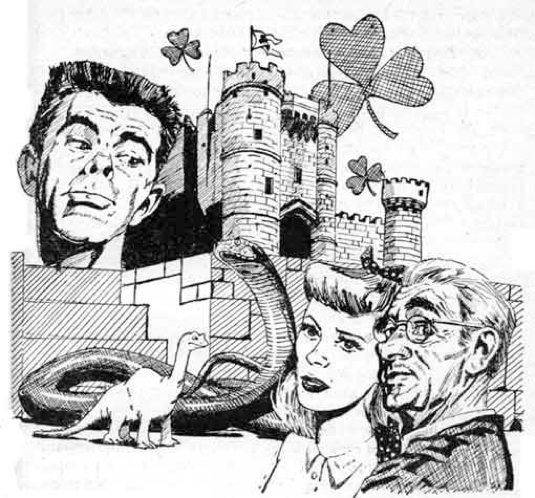
by Bernklau
Then we have the truly ridiculous A Rose by Other Name, a Chris Anvil story about how the removal of military and jingoistic jargon from our vocabulary makes it impossible to go to war. Not good.
Campbell has tried to make his magazine more respectable by including a slick paper non-fiction segment starting this month. Frank Foote and Arthur Shuck penned Solid Plutonium Headache about the technical and physical difficulties associated with working this dangerous radioactive material. A more boring article I have never read, which is a shame because there's nothing wrong with the subject matter. Until Campbell finds himself an Asimov or a Ley, I think his non-fiction section won't be worth much—particularly as the slick paper is not at all absorbent.
Poul Anderson's The Burning Bridge, about a fleet of interstellar colony ships on a 40-year trip to settle a new world, is decent. Recalled by Earth nearly a few years into their flight, the fleet's Admiral must determine whether or not they will return or press on. The cast is nicely international, and women play an important (though oddly segregated) part.
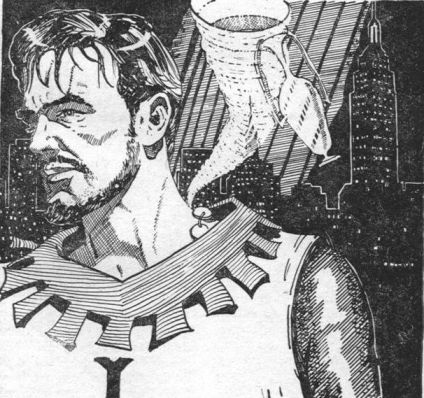
by Bernklau
Then we have The Garrett, in this case Viewpoint. A fellow dreams himself into the future and discovers a strange new world before snapping back to his original time. The now-typical Randallian gimmick is that the person is a famous figure from the past, and the destination is now-ish. It's not as bad as it could have been, but Garrett loses a star just for being Garrett.
Finally, we have The Silverberg: Stress Pattern. This story is hard to rate because there are really two things going on here. On one hand, we have the story of a sociologist and his assistant wife (no doubt inspired by Bob Silverberg's wife and partner, Barbara) and the slow unraveling and subsequent recovery of their lives. The characterization and writing are quite good, and I was carried along for the entirety of the tale's 30 pages.
On the other hand, in the end, the story is a rather ham-fisted argument against the leveling qualities of increased socialism (small "s") and social welfare. The message of the story is that while we might keep the lower classes fat and happy, the secure smart people are just going to get bored and restless. While such an argument could be made against a uniform public school curriculum, and while in true Socialism, the only way to get ahead is to cheat, I don't think things can progress in America as Silverberg contests. Moreover, that part just feels tacked on to tickle Campbell's fancy. It has that "secret society knows all the answers and can manipulate humanity like a machine" conceit I generally find tiresome.
Still, Bob is coming along. I think if he tried writing for another magazine, he could put his talent for prolific writing and good portrayals toward making something truly good. He's not Randy Garrett, even though he works with him regularly.
All told, it's a 2.5 star issue. But I promised a kicker: the serial, Deathworld, is excellent so far, and I'm keenly anticipating next month's installment. You'll have to wait until next February to get the review, but I think it will be a good one!
Stay tuned!
Note: If you like this column, consider sharing it by whatever media you frequent most. I love the company, and I imagine your friends share your excellent taste!
P.S. Galactic Journey is now a proud member of a constellation of interesting columns. While you're waiting for me to publish my next article, why not give one of them a read!
(Confused? Click here for an explanation as to what's really going on)
This entry was originally posted at Dreamwidth, where it has comments. Please comment here or there.



